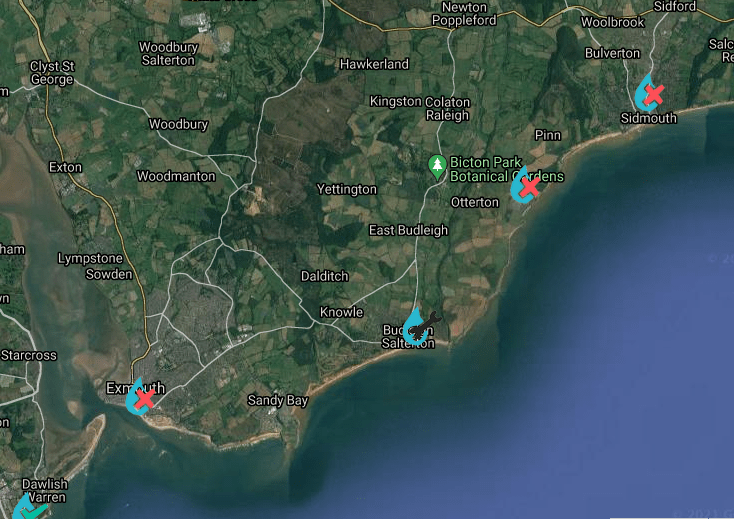As the holiday season kicks off in earnest, there are widescale sewage alerts are in operation for East Devon beaches see https://www.sas.org.uk/map/ and the alert system at Budleigh Salterton seems to be out of action.
E.g: Sidmouth Town
“Pollution Alert: Storm sewage has been discharged from a sewer overflow in this location within the past 48 hours.
Rock pools to the west, overhanging cliffs to the east, Sidmouth Town beach compromises 900m of legally protected pebbles broken up by rock groynes and backed by a promenade and the town. Two sewer overflows are located at Sidmouth, one discharges through a long sea outfall some 600m out to sea while the other discharges into the River Sid, just under 400m to the east.”
In 2020 there were 1,919 pollution incidents, a decrease from 2,204 in 2019, but the second highest total since 2015. See this report.
“Southern Water and South West Water both performed significantly below target for pollution … Southern Water for the second year in a row and South West Water for the 10th year in a row,” the Environment Agency said. “Both companies’ performances have been consistently unacceptable.”
The impact of pollution from water companies can be seen in the poor quality of water in English rivers. Last year every river failed pollution tests. Pollution from raw sewage discharges by water companies directly into rivers, chemical discharges from industry and agricultural runoff are significant sources of pollution, according to the data.
Emma Howard Boyd, the chair of the Environment Agency, said on Tuesday: “The bottom line is, England’s rivers are too polluted.”
Nearly a third (32%) of rivers were failing to meet tests for good ecological status because of discharges from sewage treatment works. About 7% of rivers are polluted because of raw effluent flowing from storm overflows, the EA said.
(Southern Water has just been fined a record £90m for dumping billions of litres of raw sewage into the sea).

